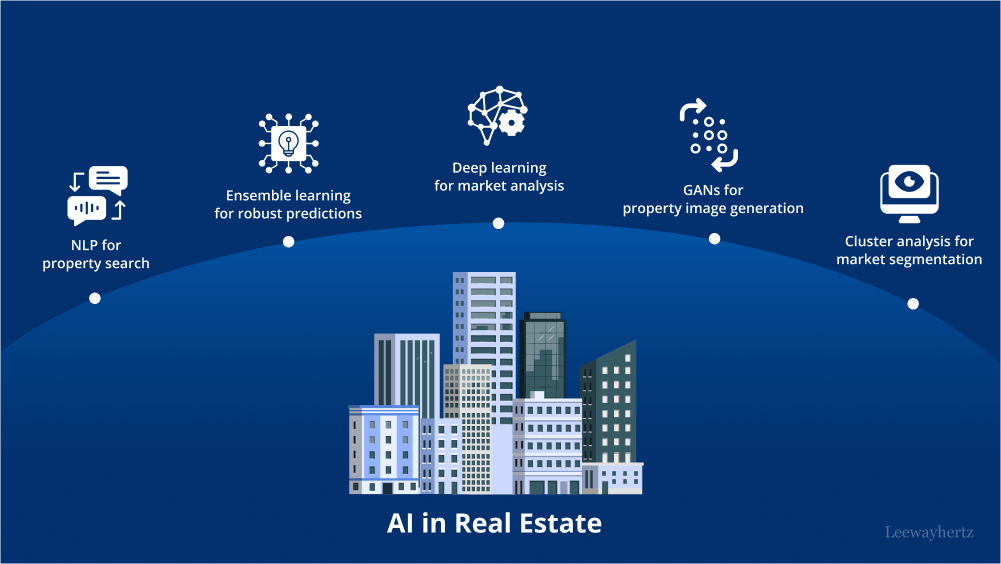Artificial Intelligence (AI) is revolutionizing the real estate industry by streamlining processes, enhancing decision-making, and creating more personalized customer experiences. As the sector evolves, understanding the impact of AI becomes essential for developers, investors, agents, and homebuyers alike.
What is the Role of AI in Real Estate?
AI in real estate involves the use of data-driven algorithms, machine learning models, and predictive analytics to automate tasks, identify trends, and optimize operations. From property management to price forecasting, AI is helping reshape how real estate is bought, sold, and managed.
Key Areas Where AI Impacts Real Estate
Property Valuation and Price Prediction
AI models can analyze market trends, location data, nearby amenities, and historical pricing to provide more accurate and real-time property valuations. This helps buyers and sellers make smarter decisions and reduces reliance on manual appraisals.
Smart Property Search and Recommendations
AI enhances property search engines by analyzing user behavior, preferences, and browsing history to recommend listings that match specific needs. This creates a more personalized experience for buyers and renters, saving them time and effort.
Virtual Tours and Chatbots
AI-powered virtual tours allow prospective buyers to explore properties remotely through interactive 3D walkthroughs. Chatbots integrated into real estate websites provide instant responses to queries, improving customer service around the clock.
Predictive Analytics for Investment
Real estate investors use AI to analyze neighborhood trends, demographic shifts, and economic indicators to predict high-growth areas. These insights help in identifying lucrative opportunities and minimizing risks.
Fraud Detection and Document Automation
AI helps detect anomalies in financial transactions and verify documents, reducing the risk of fraud. Smart contract systems and AI tools can automate lease agreements, mortgage approvals, and title verifications—saving both time and cost.
Smart Building Management
AI-powered systems in smart buildings monitor energy consumption, automate lighting and climate control, and predict maintenance needs. This enhances efficiency and reduces operational costs in both residential and commercial properties.
Challenges and Considerations
While AI offers immense potential, it comes with important considerations:
- Data Privacy: Real estate AI tools handle sensitive personal and financial data, requiring robust data protection measures.
- Job Displacement: Automation may reduce the need for certain roles, necessitating workforce upskilling.
- Algorithm Bias: AI systems trained on biased or incomplete data may make flawed recommendations or exclude certain communities.
Conclusion
AI is fundamentally changing the way the real estate industry operates—from smarter search and valuation tools to predictive analytics and automated property management. While the technology brings speed, accuracy, and efficiency, it also calls for responsible usage that prioritizes ethics, transparency, and human oversight. Embracing AI thoughtfully will enable real estate professionals to stay competitive and deliver enhanced value in a rapidly evolving market.







Leave feedback about this